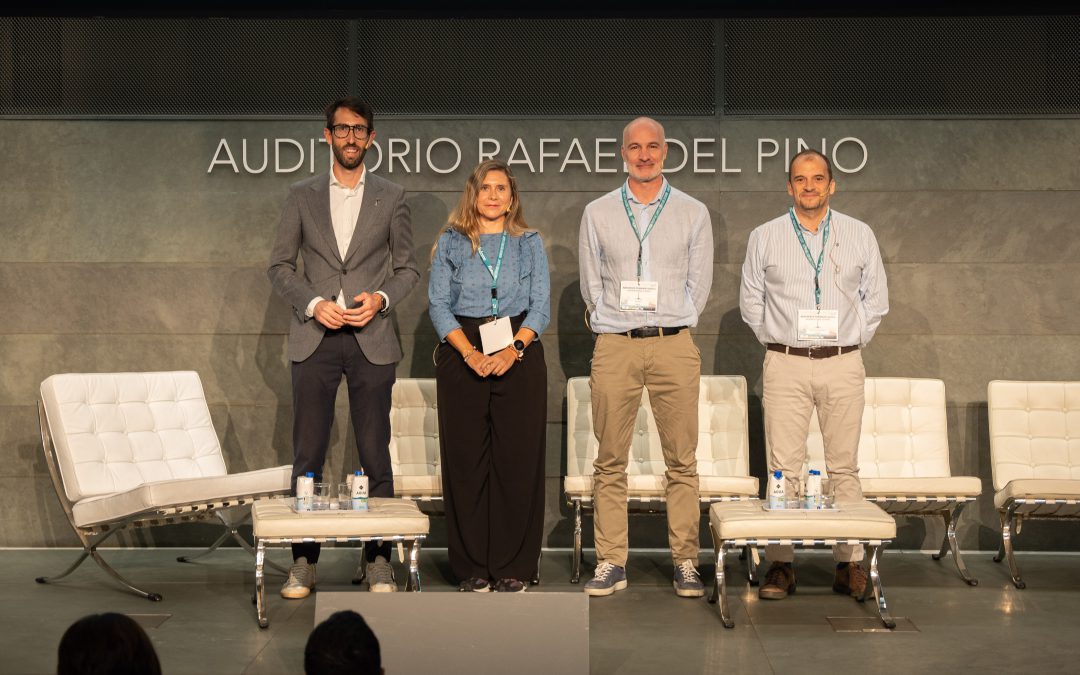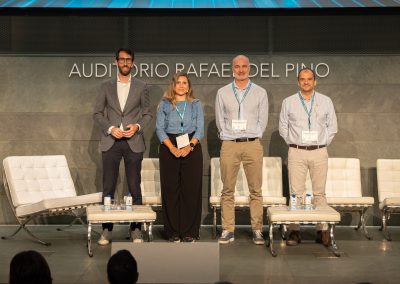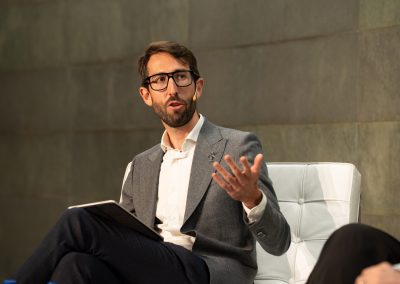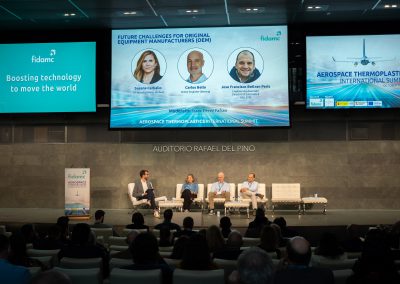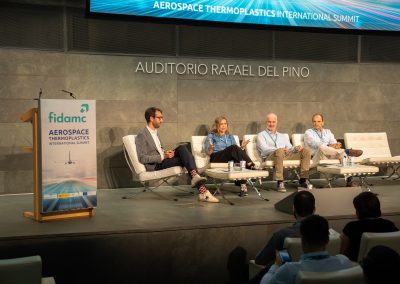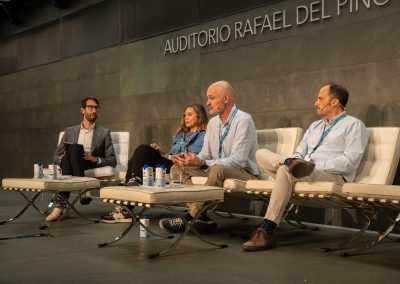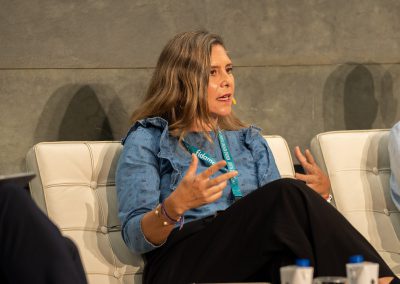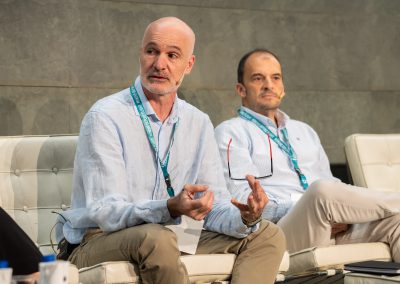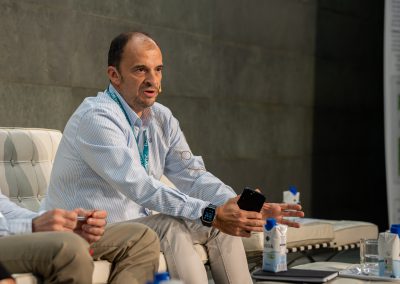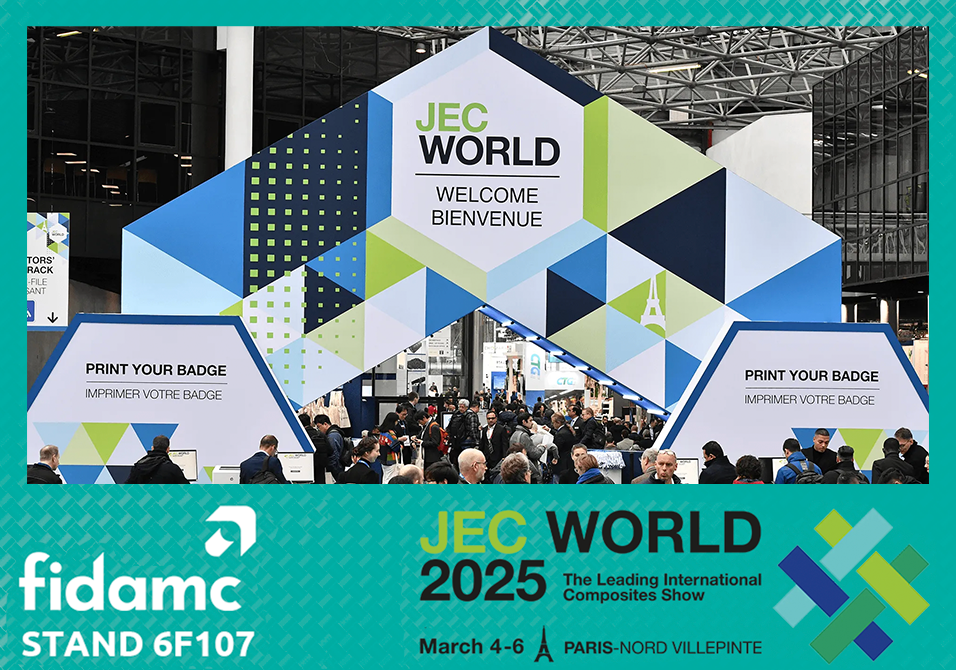The second round table of the event, entitled "Future challenges for original equipment manufacturers (OEMs)", moderated by Isaac Pérez, Director of Expansion at Fidamc, brought together three key voices from the sector: Susana Carballo (VP Aerostructures, Airbus), Carlos Bello (Senior Engineer, Boeing) and José Francisco Beltrán París (Engineering Associate Director of Externals & EBU, ITP Aero).
The debate began with a shared reflection: the aviation industry is undergoing rapid transformation, driven by high demand, pressure to consider sustainability, and the emergence of disruptive technologies. "We are in the fourth aviation revolution, and we are fortunate to be part of it", said Carballo.
From Airbus' perspective, Carballo highlighted two major challenges: increasing production rates and sustainability. The executive noted that global demand will require "producing more than 43,000 aircraft in the coming years," a goal that will necessitate "dramatically increasing current rates." At the same time, she stressed the urgency of reducing environmental impact: "2050 is very close, and we must improve the sustainability of materials, production and aircraft operation.".
From the point of view of engines, José Francisco Beltrán stressed that sustainability implies a profound technological transformation."We are the main contributors to emissions, and therefore we must lead the search for solutions", he said. Among these, he mentioned hydrogen, hybrid and electric propulsion, technologies that still need to be consolidated under new certification rules that guarantee air safety.
At the end of the debate, the three experts agreed on the potential of thermoplastic materials as a tool for responding to the major challenges facing the sector. Carballo highlighted their ‘advantage in sustainability and recyclability," while Bello emphasised their role in efficiency: "Thermoplastics can be processed in minutes rather than hours, and they are reformable and recyclable." Beltrán added that, in engines, they offer benefits ‘in terms of weight, aerodynamics and repairability," which are key to efficiency and cost reduction.
The panel concluded with a shared vision: the future of the sector will depend on combining innovation in materials, more sustainable processes and a collaborative approach between OEMs and suppliers.. As Pérez summarised, "the challenges are enormous, but so are the opportunities to reinvent the aerospace industry".

